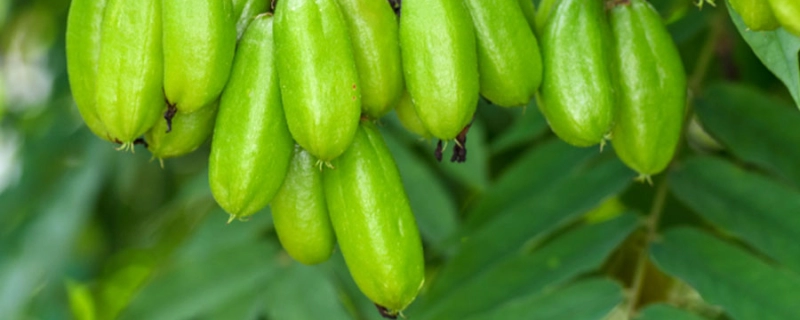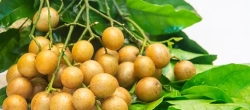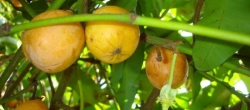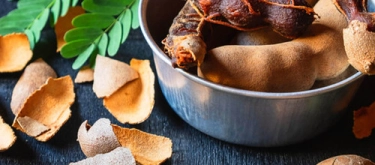Bilimbi: Taste Profile, Aroma, Benefits and Health Risks
Bilimbi, also known as the cucumber tree fruit or tree sorrel, is a unique tropical fruit native to Southeast Asia. Known for its intense sourness, bilimbi is commonly used in cooking, particularly in sauces, pickles, and chutneys. Its distinctive tartness and crisp texture make it an ideal ingredient for balancing rich or spicy flavors. This article delves into bilimbi’s flavor profile, culinary uses, health benefits, and selection and storage tips.
What does Bilimbi taste like?

Primary Flavor Characteristics
Bilimbi is highly acidic, with a sharp, refreshing sourness that dominates its flavor profile. Its tanginess is stronger than that of typical citrus fruits, making it particularly well-suited for use in savory dishes where acidity is needed.
Aromatic and Taste Nuances
Bilimbi has a crisp, juicy texture with a light, citrus-like aroma and earthy undertones. The fruit’s tartness intensifies as it ripens, while its firm, almost crunchy texture provides a refreshing contrast.
Scientific Description of Taste and Aroma
- Aroma: Light, citrusy, with earthy undertones.
- Taste: Intensely sour, similar to lemon or unripe starfruit.
- Texture: Crisp and juicy, with a firm, cucumber-like structure.
In-Depth Flavor Analysis of Bilimbi
Underlying Flavor Notes
Bilimbi’s intense acidity provides a multi-layered flavor experience:
- Sharp Tartness: The fruit’s pronounced sourness is balanced by its natural crispness, making it refreshing.
- Light Citrus Notes: Similar to lemon or lime, with a slight hint of bitterness.
- Earthy Undertones: Adds depth and balances the acidity, especially when cooked.
Impact of Ripeness on Flavor
- Under-ripe Bilimbi: Extremely sour and firm, ideal for pickling or adding to soups.
- Fully Ripe Bilimbi: Slightly less acidic with a juicy, crisp texture, perfect for sauces and fresh preparations.
Textural Qualities
Bilimbi’s crisp and juicy texture resembles that of a cucumber, making it versatile for raw or cooked applications. Its firm structure holds up well in dishes that require prolonged cooking, such as curries or stews.
Culinary Uses of Bilimbi
Primary Uses
- Pickling: Due to its acidity, bilimbi is popular in pickles, providing a strong tangy flavor that enhances various dishes.
- Chutneys and Sauces: Bilimbi’s sourness complements chutneys, sauces, and relishes, especially in South Asian cuisine.
- Curries and Stews: It’s commonly added to curries and stews to balance rich flavors with its acidity.
- Salads: Thin slices of bilimbi add a zesty, refreshing crunch to fruit and vegetable salads.
- Juices and Refreshing Drinks: In small quantities, bilimbi juice is mixed with other fruits to add tartness to tropical beverages.
Ideal Pairings for Bilimbi
- Spices: Turmeric, ginger, and chili enhance bilimbi’s flavor in savory applications.
- Coconut Milk: The creaminess of coconut milk balances bilimbi’s acidity in curries.
- Seafood: Bilimbi adds a refreshing tartness that complements fish and shellfish.
- Herbs: Mint and cilantro bring a cooling contrast to bilimbi’s sourness in salads and relishes.
- Tropical Fruits: Mango and pineapple add sweetness to balance bilimbi in chutneys and beverages.
Health Benefits of Bilimbi
Key Nutrients and Benefits
- Vitamin C: High in vitamin C, bilimbi supports immune function and skin health.
- Antioxidants: The fruit contains antioxidants that protect cells from oxidative stress.
- Dietary Fiber: Bilimbi’s fiber content aids digestion and promotes satiety.
- Anti-inflammatory Properties: Some compounds in bilimbi may help reduce inflammation.
- Low Calorie: Bilimbi is low in calories, making it an excellent option for those seeking to add flavor without additional calories.
Potential Precautions
- High Acidity: Due to its intense acidity, bilimbi may cause irritation in individuals with sensitive stomachs.
- Oxalate Content: Bilimbi is high in oxalates, so it should be consumed in moderation by those with kidney concerns.

Tips for Choosing and Storing Bilimbi
How to Choose Quality Bilimbi
- Color and Firmness: Choose bright green or slightly yellow bilimbi that is firm, as this indicates freshness and ideal acidity.
- Aroma: Ripe bilimbi has a faint citrus aroma, which hints at its strong tart flavor.
Storage Recommendations
- At Room Temperature: Store unripe bilimbi at room temperature until it reaches desired ripeness.
- In the Refrigerator: Ripe bilimbi can be refrigerated, where it will stay fresh for up to one week.
- Freezing: Bilimbi slices or juice can be frozen for later use in soups, sauces, or drinks.
Fun Facts About Bilimbi
- Culinary Staple in Southeast Asia: Bilimbi is widely used in Malaysian, Filipino, and Thai cuisines, often as a souring agent.
- Relatives of Starfruit: Bilimbi is botanically related to starfruit (carambola) but has a much higher acidity.
- Natural Cleanser: Due to its high acidity, bilimbi juice is sometimes used in natural cleaning remedies for removing stains.











